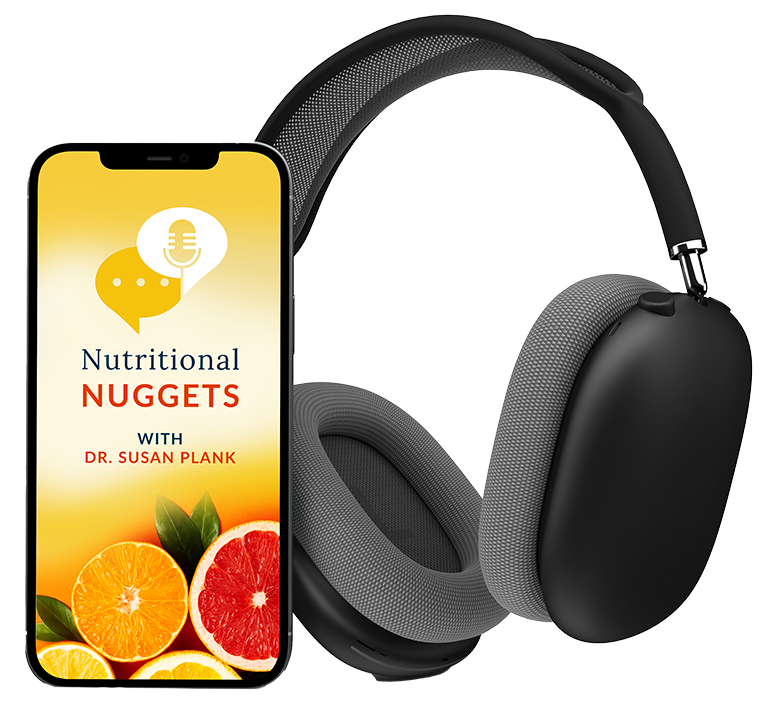Your metabolism is the process within your body by which food is turned into fuel. Essentially, it’s how you make energy for your body to function. Your metabolism determines how efficiently you are able to lose weight as well as how fast/slow your weight loss results are. Improve your metabolism, ideally alongside a well-balanced diet and physical activity, and you have a solid foundation for sustainable weight loss
The Science Behind Your Metabolism

The science of metabolism refers to all the various chemical reactions that occur in our body to keep us alive and functioning. These reactions’ main function is to turn our food into energy but also help to build and repair our cells and tissues.
There are two main types of metabolic reactions, ones that build up and ones that break down. These are known as anabolic and catabolic reactions.
Anabolic reactions build new molecules, while catabolic reactions break down molecules to release energy. Both types of reactions are necessary for our body to function properly.
These reactions occur because of the role of enzymes. Enzymes are proteins that speed up chemical reactions in the body. They act as catalysts, making it easier for the reactions to occur. Without enzymes, many of the metabolic reactions that keep us alive would be too slow to sustain life.
When I mention enzymes, you might immediately think of digestive enzymes. But digestive enzymes aren’t the only enzymes in your body.
While it is true, digestive enzymes are a type of enzyme that breaks down food in the digestive system, overall enzymes are actually involved in many different processes throughout the body affecting your metabolism and health.
Enzymes are catalyzing proteins that speed up chemical reactions in your body. For example, enzymes are involved in the breakdown of your blood sugar, known as glucose for energy in your cells, the synthesis of hormones and neurotransmitters, and the breakdown of alcohol in the liver. There are thousands of different types of enzymes in the body, each with its own specific function.
If we take this a step further considering your metabolism and weight loss efforts, enzymes can play a role in the breakdown of fats and carbohydrates, as well as in the production of hormones that regulate metabolism. Some supplements and foods are marketed as “metabolism-boosters” because they contain compounds that can enhance and activate certain enzymes involved in metabolic processes.
3 Sure, Fire Ways to Boost Your Metabolism Naturally
1. Get enough lean protein.
Protein is an essential nutrient that plays a key role in building and repairing muscle tissue. Lean protein has a higher thermic effect than carbohydrates or fat, meaning that it requires more energy to digest and absorb.
Make sure to include protein-rich foods like lean meat, fish, turkey, chicken, eggs, and legumes in your diet so you can help boost your metabolism naturally.
What are metabolism busters? Scientific research has shown that a diet high in red meat, sugar, and fast food can slow down the production of the catalyzing enzymes and therefore your metabolism.
Consuming excessive amounts of red meat, in particular, processed meats, like lunch meats has been linked to an increased risk of Metabolic Syndrome which leads to obesity, type 2 diabetes, and heart disease.
Eating and drinking sugar and fast food, including pops and sodas (depending on where you come from) can also lead to an overconsumption of calories, which can contribute to weight gain and a slowed metabolism.
2. Stay hydrated.
Drinking enough water is important for overall health, but it can also help boost metabolism. Studies have shown that drinking water can temporarily increase metabolism by up to 30%.
Every cell’s normal function in the body is dependent on staying hydrated. In my opinion, hydration is optimal with water and herbal tea. Do not add anything to the water- just plain water is best!
3. Build muscle.
Building muscle through strength training, whether resistive bands or weights is very important to your metabolism. Muscle tissue burns more calories at rest than fat does. Strength training exercises like weightlifting can help build and maintain muscle mass, which can boost metabolism over the long term.

Understanding Weight Loss Plateaus
For most people on their weight loss journey, I don’t think there’s anything more frustrating than hitting a weight loss plateau, you’re doing the work, feels like you’re sacrificing but not seeing any results. But it happens to virtually everyone, why?
There are a couple of reasons:
Metabolic Adaptation.
Eating the same foods, the same meal, and doing the same exercise is a recipe for a sluggish metabolism. As you lose weight, your metabolism adapts to food and exercise by decreasing your metabolic rate. In other words, you weigh less so you need less food to support your new weight. If you continue to eat exactly the same thing, do the same exercise, or eat more than your body can burn for energy, this can slow down the rate of your metabolism and therefore your weight loss.
Inflammatory Overload.
Consuming a diet high in foods that are inflammatory to you can cause a weight loss plateau. I see this as a primary reason why a “keto diet” causes weight loss to plateau.
Most people that try the keto diet, are downing cheese, bun-less burgers, lunch meat, pepperoni, steak, bacon, and as much animal protein and fat as they can get their hands on. Unfortunately, dairy and red meat are highly inflammatory for many people. Eating strictly these foods on a keto diet can be the underlying cause of a weight loss plateau.
Another consideration is that inflammation can also interfere with the body’s ability to burn fat for energy, which can contribute to a weight loss plateau. Additionally, chronic inflammation can lead to water retention and bloating, often known as water weight, which can make it appear as though weight loss has stalled even if body fat is still being lost.
If you have experienced a weight loss plateau then I suggest, it’s even more important for you to focus on consuming a diet rich in anti-inflammatory foods, such as fruits, vegetables, high-fiber whole grains, lean protein, and healthy fats like omega-3 fatty acids. Avoiding or limiting inflammatory foods, such as dairy, red meat, processed and fried foods, sugary drinks, and refined carbohydrates, can also help you reach a healthy weight and optimize your metabolic rate.
Nutrition and Metabolism.
We gain our nutrition through food, drink, and supplements. Different foods and nutrients that you consume can have varying impacts on your metabolism and weight loss efforts. Here are some examples:
Protein
Protein, as we already discussed is an essential nutrient for building and repairing muscle tissue, and it also has a high thermic effect, which means it requires more energy to digest and metabolize protein than it does carbohydrates and fats. I’m a big fan of incorporating five servings of lean protein into your daily diet if your goal is to lose weight. Two of those servings I recommend be a protein shake for better absorption. Including protein in meals and snacks can give your metabolism a boost and promotes feelings of fullness, which can support weight loss.
Carbohydrates
Carbohydrates are your body’s primary source of energy, but not all carbs are created equal. High-fiber, complex carbohydrates like whole grains, beans, whole fruits, and crunchy vegetables are more slowly digested and can help regulate blood sugar levels, while refined carbohydrates like white bread, pasta, and sugary snacks can cause spikes in blood sugar and insulin levels. This can contribute to insulin resistance and metabolic syndrome, which puts the brakes on your weight loss.
Fat
Healthy fats like omega-3 fatty acids found in fatty fish, nuts, and seeds can help support your metabolism and reduce inflammation. These are healthy helpful fats, while saturated and trans fats found in red meat and fried foods can contribute to insulin resistance and slowing your metabolic rate. It’s important to include healthy fats in the diet in moderation. Fat carries flavor but also gives you a sense of fullness.
Fiber
Fiber is one of the most overlooked nutrients in nutrition. High-fiber foods like whole grains, fruits, and vegetables can help promote feelings of fullness, regulate blood sugar levels, balance hormones, and support digestive health. This can help support weight loss by reducing overall calorie intake and promoting a healthy gut microbiome.
Water
Staying hydrated needs to be a top health priority. Drinking non-caffeinated beverages, strictly water and herbal tea will support your metabolism. It also aids with a sense of fullness, which is helpful to support your weight loss efforts. Drinking water before meals has been shown to reduce calorie intake and support weight loss efforts. In my 30 years of nutritional work, I’ve never met someone who wanted to lose weight and had adequate hydration levels – I just haven’t seen it. Drink only water, especially if you’ve hit a weight loss plateau!
Metabolism and Weight Loss Myths
Myth #1
Skipping meals will help you lose weight.
Fact: Skipping meals can actually slow down your metabolism and make it harder to lose weight. It’s better to eat regular, balanced meals throughout the day. This is also a concern of mine with regard to intermittent fasting. There is no one size fits all magic weight loss action.
Myth #2
Eating spicy foods will boost your metabolism and help you lose weight.
Fact: While spicy foods may slightly increase your metabolism, the effect is temporary and not significant enough to cause weight loss on its own.
Myth #3
You can target specific areas of your body for weight loss.
Fact: You cannot spot-reduce fat from a specific area of your body. Weight loss happens all over your body.
Myth #4
High-protein, fat-free, or low-fat foods are always healthier for weight loss.
Fact: Many fat-free or low-fat foods are actually high in sugar or other unhealthy additives to make up for the lack of fat. It’s important to read labels and choose whole, nutritious foods instead. Keep this in mind when thinking a “protein bar” is a healthy choice. Most protein bars have more grams of sugar than they do protein per serving.
Myth #5
Exercise is the most important factor for weight loss.

Fact: While exercise is important for overall health, diet plays a bigger role in weight loss. It’s much easier to consume fewer calories than it is to burn them off through exercise alone. Many of my clients are at high risk for exercise initially. We get the weight off and then can safely monitor them as they increase their movement and exercise.
If You Want to Master Your Metabolism, Here’s Your Takeaway:
You can boost your metabolism by learning the science behind it.
Understanding and mastering your metabolism is key to achieving sustainable weight loss. It is important to understand that weight loss ultimately comes down to removing the metabolic barriers that are affecting your weight and keeping you stuck.
If you frequently experience:
- Fatigue and feeling tired or exhausted
- Weight loss frustration or plateau
- Difficulty staying or falling asleep
- Struggles with cravings for sugar and unhealthy carbs
- Bloat or digestive issues
You should give consideration to the following health factors and consider further evaluation or testing for these conditions:
- Inflammation
- Hormone Balance
- Blood Sugar & Insulin Resistance
- Toxins
Microbiome







